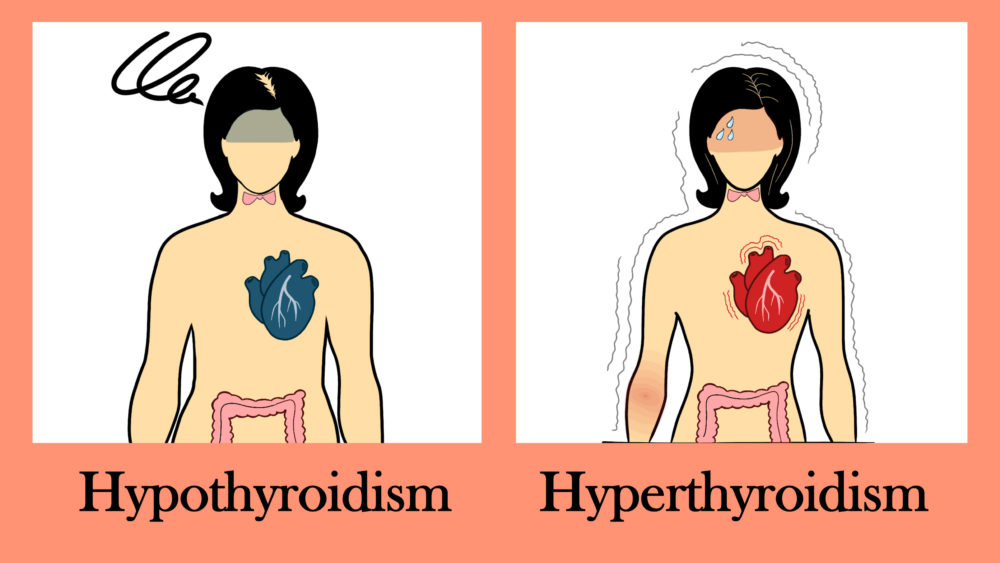An important disorder that affects women is an unbalanced thyroid. According to the medical website Healthline, women are three times more likely than men to develop thyroid issues. The thyroid is a butterfly-shaped gland in the neck that affects a variety of important bodily functions, including body temperature and metabolism regulation. A tendency to have an overactive or underactive thyroid runs in families, so it’s a good idea to have it checked out if you have a family history of thyroid issues. Often, the symptoms of underactive and overactive thyroid are gradual and present themselves inconspicuously, but there are clear distinctions between them. Here are ways to tell the difference between an underactive and overactive thyroid.
Symptoms for hypothyroidism
Hypothyroidism occurs when the gland is underactive. While an underactive thyroid can appear at any age, the symptoms tend to occur as you get older and is commonly caused by genetics. Sabrina Rene, M.D., an endocrinologist at Piedmont Healthcare, says, “When you have an underactive thyroid, your immune system is triggered to fight your thyroid, causing inflammation, which causes your thyroid to produce fewer thyroid hormones. The symptoms are typically vague and often resemble those that occur in other disorders, like iron deficiency.”
Common symptoms of hypothyroidism include:
- Fatigue
- Depression
- Unexplained weight gain or trouble losing weight
- Hair loss and dry hair
- Brittle nails
- Sensitivity to cold
- Irregular period
- Constipation
- Carpal tunnel syndrome
- Slow heart rate
You can easily diagnose hypothyroidism with a simple blood test called a thyroid-stimulating hormone (TSH) test. The disorder can more likely develop with other risk factors beyond genetics, including hashimoto’s thyroiditis, low iodine diet, radiation exposure from cancer treatment, surgical removal of the thyroid. Treatment includes a medication called levothyroxine sodium tablets (aka Synthroid) that can be taken once a day as a replacement hormone to help regulate thyroid levels.
Symptoms of hyperthyroidism
Hyperthyroidism occurs when the thyroid gland is overactive, and producing too much thyroid hormone. Some common causes of hyperthyroidism include Graves disease, swollen thyroid, and thyroid nodules. The medications Methimazole or Propylthiouracil are used to treat hyperthyroidism, as they signal the thyroid to slow down T4 and T3 hormone production. If left untreated, hyperthyroidism can lead to an irregular heart rhythm and excessive bone loss. Therefore, you’ll want to check for the symptoms which can include:
- Unexplained weight loss
- Feeling wired or anxious
- Racing heartbeat
- Sweating spells
- Feeling hot frequently
- More frequent bowel movements than usual
- Fine hair and hair loss
- Shakiness
Sources:
https://www.piedmont.org/living-better/the-difference-between-hypothyroidism-and-hyperthyroidism
https://www.healthline.com/health/hypothyroidism/hypothyroidism-vs-hyperthyroidism



